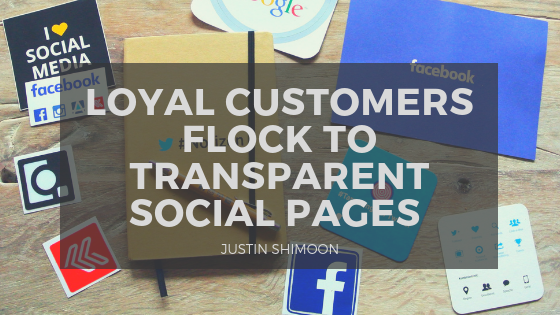As companies struggle to better connect with their customers, and particularly build stronger relationships with the millennial generation, they’re coming to terms with the fact that social media could define the branding of their business. As more and more consumers get their information from social media platforms, traditional methods of marketing and outreach are becoming less effective. And as millennials have begun bucking traditional notions of brand loyalty, companies are having to scramble to find a solution.
But the answer could be simpler than many might think. With a wealth of competitors in just about every field, consumers are expecting a company that’s loyal and honest with them before they’re willing to offer their loyalty in return. It’s a premise that seems to have research weighing in its favor. A recent study by the Social Media and the Evolution of Transparency report found that a vast majority of individuals believe that businesses should be transparent with their customers. 1,000 consumers were surveyed, and 86% weighed in favor of transparency. Perhaps most shockingly, those surveyed weighed it as a more important value for businesses to have than any other demographic. The standards for politicians, friends, families, and even non-profits all ranked lower in terms of the demand for transparency.
At the core of this study is the understanding that businesses need consumers more than consumers need businesses. Part of that could be due to the decreased barrier to entry to businesses. SaaS has made delivery pipelines more accessible to small businesses than ever before, and the rise of the internet means that countless companies can put their product front and center in a customer’s consciousness.
But understanding the importance of transparency also means understanding what that word means to prospective customers. 59% of those surveyed connected transparency to “openness”, 53% to “clarity”, and 49% to “honesty”. In short, customers want to know the objectives of the companies they do business with, and they want a personal connection that helps them draw a direct line between their own values and that of the organizations they choose to do business with. Fortunately, businesses have more options in how they directly engage with their customers. More and more companies are engaging customers directly through channels like Twitter and Facebook, and these platforms are increasingly becoming the main window by which customer service teams operate. Moving forward, the business world will have to start recognizing that properly reaching their customers has less to do with a clever ad campaign and more to do with an authentic ad campaign that puts their values and brand identity in clear relief.

